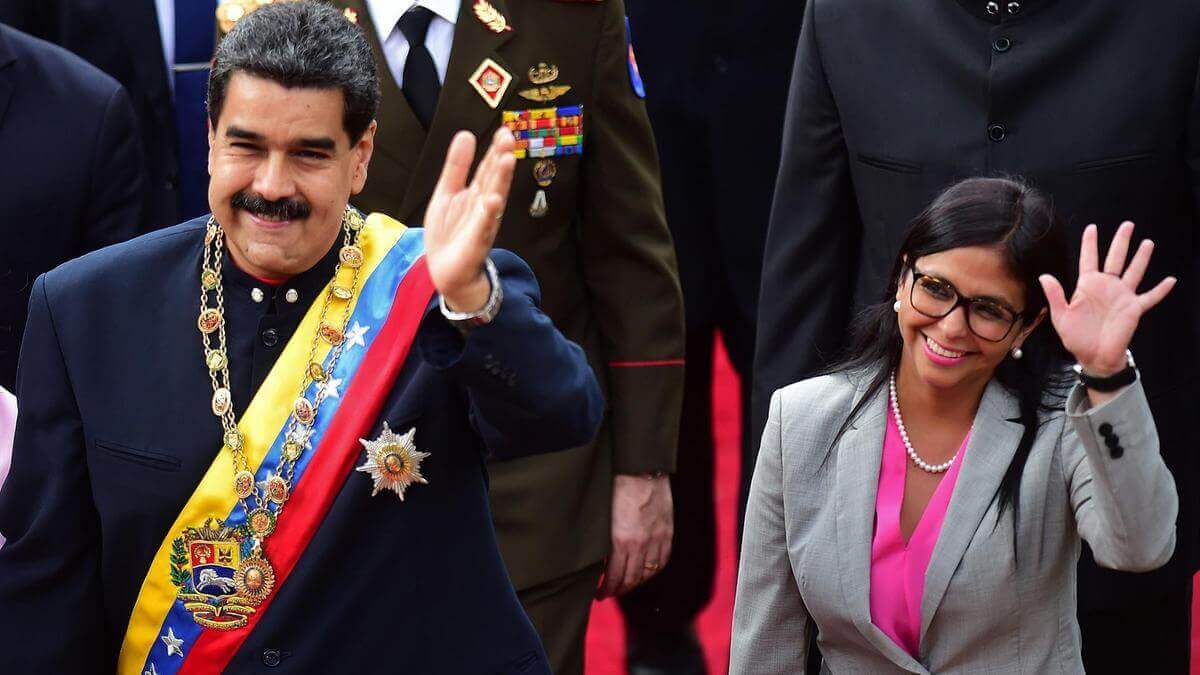Venezuelan Vice President Delcy Rodríguez unveiled the newly approved constitutional anti-blockade law that seeks to limit the economic damage wrought by US sanctions by offering new avenues to protect foreign investment.
Flanked by Foreign Affairs Minister Jorge Arreaza, Rodríguez said that the new provision “provides special forms of information protection, to protect those who come to invest in Venezuela, to protect their investment”. She remarked that the law allows the country to “take a step forward” and “go on an economic offensive” against severely debilitating US sanctions.
The Nicolás Maduro-led government has put in place plans to open up the oil, gas, mining, agriculture, and tourism industries to “large-scale investment”. In accordance with this goal, the government has declared “unilateral, restrictive, or punitive coercive measures” against Venezuela as ‘illegal’, saying, “We do not recognize them, they do not exist in our territory.”
At the same time, the law intends to “protect internal and external assets from the threat of confiscation, theft, and looting by foreign governments or companies aligned with the blockade”.
Last week, Maduro tweeted, “Let’s go together Venezuela! Let's face and overcome the criminal US blockade against Venezuela through the new actions that will arise from the Constitutional Anti-Blockade Law. Let’s defeat meanness and hatred from Venezuela’s enemies and lackeys. The Victory is our way!”
This announcement appears to suggest that Venezuela will provide labor and tax incentives to incentivize foreign investment, while also increasing the use of its crypto-currency, the petromoneda, to escape financial persecution.
There is a growing realization among international investors that, despite heavy international pressure and the recognition of opposition leader Juan Guaidó as the legitimate interim leader of the country, a change in government may be becoming increasingly unlikely. In fact, the government, too, appears to have gained confidence in its ability to maintain power and has thus introduced a number of economic restructuring plans.
On Monday, the Venezuelan government offered bondholders in state energy company Petroleum of Venezuela (PDVSA) and the National Electric Corporation to pause their “periods of prescription” to as to ride out the wave of the impact of “illegal actions” by the US.
Likewise, some investors have started buying defaulted Venezuelan bonds at ‘heavily discounted’ rates, despite the fact that Venezuelan bonds have “not been serviced in nearly three years”. The leaders behind these funds contend that if Guaido does not arise t power before the end of 2020, they may be unable to recover “missed interest payments” on account of a “statute of limitations clause in the bonds’ covenants”.
In June, Venezuela’s Supreme Court unilaterally swore in a new commission to the country’s National Electoral Council. Currently, the opposition, led by Guaidó, holds a majority of seats in the congress, which is the only branch of government that is not under Maduro’s control. A few days later, Supreme Court also ordered the takeover of two opposition parties, the Justice First party and the Democratic Action party, as part of what it described as a “necessary restructuring process”.
These latest efforts to protect the economy from further damage appears to indicate that the Maduro regime is consolidating its power. The success of these moves remains to be seen. In all likelihood, they will be enough to counteract the impact of international blockades. What is clear, however, is that US-led sanctions are merely extending the suffering of millions of impoverished Venezuelans.
Venezuela Unveils Anti-Blockade Law to Protect Foreign Investment From US-Led Sanctions
The law intends to “protect internal and external assets from the threat of confiscation, theft, and looting by foreign governments or companies aligned with the blockade”
October 15, 2020

IMAGE SOURCE: GETTY IMAGESVenezuelan President Nicolás Maduro (L) and Vice President Delcy Rodríguez
